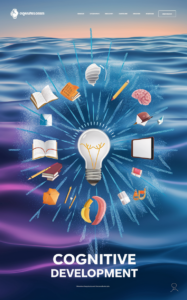Top Tips for Early Childhood Education Success
Early childhood education is a critical period in a child’s development. It’s the foundation that sets the stage for lifelong learning, behavior, and health. As a parent, you play a crucial role in ensuring your child’s success during these formative years. In this blog post, we will delve into the top tips for early childhood education success, providing you with detailed and practical advice to help your child thrive.
Understanding Early Childhood Education
Early childhood education encompasses the period from birth to eight years old. During these years, children undergo rapid development in cognitive, social, emotional, and physical domains. High-quality early childhood education provides children with opportunities to develop critical skills and a love for learning.

1. Create a Stimulating Learning Environment
Why it matters: A stimulating environment fosters curiosity and cognitive development.
How to do it:
- Provide a Variety of Learning Materials: Include books, puzzles, art supplies, and educational toys that cater to different interests and developmental stages.
- Organize Learning Spaces: Create dedicated areas for reading, playing, and creative activities. A well-organized space helps children focus and engage in activities.
- Incorporate Technology Wisely: Use educational apps and interactive tools to complement traditional learning materials. Monitor screen time and ensure it is balanced with other activities.
2. Encourage Play-Based Learning
Why it matters: Play is a natural way for children to explore and learn about the world.
How to do it:
- Offer Diverse Play Opportunities: Encourage both structured and unstructured play. Provide a mix of toys and activities that promote creativity, problem-solving, and social skills.
- Engage in Play: Join your child in play activities. Your involvement can enhance their learning experience and strengthen your bond.
- Promote Outdoor Play: Ensure your child has ample time for outdoor play. It supports physical health and offers unique learning experiences.
3. Foster Social and Emotional Development
Why it matters: Social and emotional skills are essential for academic success and overall well-being.
How to do it:
- Teach Emotional Literacy: Help your child recognize and express their emotions. Use books and conversations to discuss feelings and appropriate ways to manage them.
- Encourage Social Interaction: Arrange playdates and group activities to help your child develop social skills. Model positive behavior and teach conflict resolution.
- Support Independence: Allow your child to make choices and take on responsibilities appropriate for their age. This builds confidence and self-regulation.

4. Promote Early Literacy and Numeracy
Why it matters: Early literacy and numeracy skills are the foundation for future academic success.
How to do it:
- Read Aloud Daily: Reading to your child enhances vocabulary, comprehension, and a love for books. Choose a variety of genres and topics.
- Integrate Literacy Activities: Encourage your child to tell stories, draw, and write. Provide materials like paper, crayons, and books.
- Incorporate Math in Everyday Activities: Use counting, sorting, and measuring in daily tasks. Play number games and use educational apps that focus on basic math skills.
5. Build a Strong Home-School Connection
Why it matters: A collaborative relationship between home and school supports your child’s development and learning.
How to do it:
- Communicate Regularly with Educators: Stay informed about your child’s progress and participate in school activities. Attend parent-teacher meetings and engage in open communication with teachers.
- Support Learning at Home: Reinforce what your child learns at school by providing related activities at home. Create a consistent routine that includes time for homework and educational play.
- Volunteer and Participate: Get involved in school events and volunteer opportunities. Your active participation shows your child that you value their education.
6. Encourage Healthy Habits
Why it matters: Good health is fundamental to effective learning and development.
How to do it:
- Ensure Proper Nutrition: Provide balanced meals and snacks that support growth and cognitive function. Limit sugary and processed foods.
- Promote Physical Activity: Encourage regular physical activity to build strength, coordination, and overall health. Participate in family activities like biking, hiking, or playing sports.
- Establish Healthy Sleep Routines: Ensure your child gets adequate sleep each night. Create a calming bedtime routine to help them wind down and prepare for restful sleep.
7. Support Cognitive Development
Why it matters: Cognitive skills are critical for problem-solving, reasoning, and academic success.
How to do it:
- Engage in Brain-Boosting Activities: Provide puzzles, building blocks, and memory games. Encourage curiosity by exploring new topics and asking open-ended questions.
- Encourage Exploration and Discovery: Allow your child to experiment and explore their environment. Provide opportunities for hands-on learning through science projects, nature walks, and creative play.
- Use Positive Reinforcement: Praise your child’s efforts and accomplishments. Positive reinforcement builds confidence and motivates continued learning.

Conclusion
Early childhood education is a collaborative effort that involves parents, educators, and the community. By creating a stimulating learning environment, encouraging play-based learning, fostering social and emotional development, promoting early literacy and numeracy, building a strong home-school connection, encouraging healthy habits, and supporting cognitive development, you can set your child on the path to success. Remember, your involvement and support are crucial during these formative years. Together, We can help your child thrive and reach their full potential. visit us.
By following these comprehensive tips, you will be well-equipped to provide your child with the best start in their educational journey. Early childhood education success is not just about academic achievements but also about nurturing a well-rounded, confident, and happy child.





